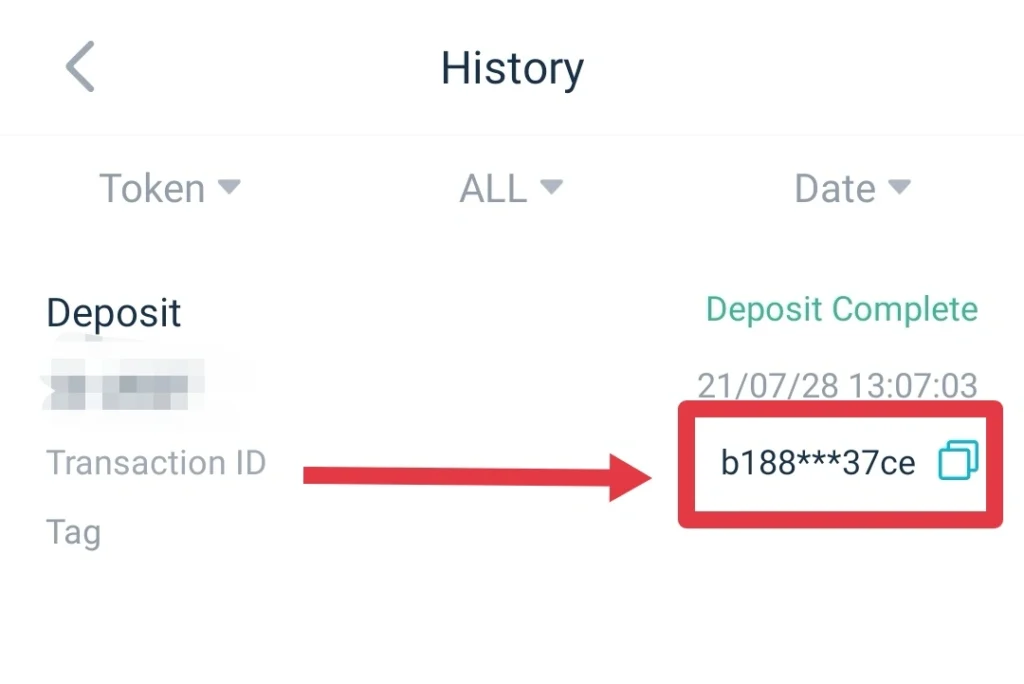What Is A Transaction ID?
In today's modern digital era, we find transactions as an integral part of our everyday life. Be it online purchases, sending money, or making any financial transaction, it's important to have a method to monitor these activities.
So, transaction IDs are very important for finding and keeping track of these monetary activities. They are also called transaction identifiers and are alphanumeric codes given to each transaction, which results in efficient monitoring and recognition of these transactions. In this article, we will cover the importance, usage, and examples of these IDs and how they can help prevent Fraud and benefit merchant’s and business success.
What Exactly Is A Transaction ID?
It is an alphanumeric code assigned to each transaction that occurs. It allows bankers to identify purchases made by cardholders. They are unique IDs composed of 12-18 alphanumeric characters tailored to each cardholder.
Each transaction ID is unique and different and it stands apart from others. It acts as a specific set of digits connecting transactions to individual cardholders and merchants. Transaction numbers play an important role in identifying transactions. It helps merchants when they need to track sales.
Different payment systems have different types of transaction codes varying in length and format. These alphanumeric IDs can be lengthy or short based on the transaction and payment method used. In a nutshell, transaction numbers play a vital role in improving efficiency, transparency, and security within financial operations.

Why Is It Necessary?
A transaction ID is really important for both merchants and customers engaged in a transaction. For merchants, it helps them to track payments, enabling them to oversee inventory, monitor revenue, and maintain accurate financial records. It also assists in stopping Fraud, which we will talk about more in the article.
Uses Of Transaction ID
It is used for monitoring financial transactions in various ways. Below are a few examples of how transaction codes are used in day-to-day life.
Validation and authentication
It is used as evidence of a transaction, confirming the occurrence of a financial transaction. Customers often receive proof of involvement in a transaction in the form of confirmation email or receipts.
Monitoring and Documentation
Due to transaction numbers, it is possible to track and record individual transactions efficiently. They function as distinctive markers for accessing and retrieving transaction-related data from databases or systems, guaranteeing precise and systematic record-keeping.
Reporting and Reconciliation
Transaction numbers play an important role in reconciliation and producing financial reports. Organizations can check if their financial data is correct and reliable by matching transaction codes with the related records.
Spotting Fraud and carrying out Investigations
It is used to detect and examine fraudulent activities. By assigning unique numbers to suspicious transactions, Fraud or unauthorized actions can be identified and analyzed. In short, transaction numbers are used for verification, monitoring, reconciliation, and fraud detection, making them a vital factor in the oversight of financial transactions and management.

Types of Transaction ID
Sequential Transaction IDs
Sequential IDs are assigned to individual transactions in chronological order. These IDs play an important role in organizing and tracking transactions, which results in accurate and consistent data. By following a sequence, they make it easy to find and understand transactions later on. These types of IDs make sure that everything is recorded accurately and are useful for finding mistakes.
Random Transaction IDs:
These are unique IDs assigned to each transaction, but they don't follow a specific order or sequence, instead, they are generated randomly, and there is no sequence to them. These types of IDs keep transactions secure, and they are hard to decode by hackers.
Hash-based Transaction IDs:
These IDs are like fingerprints for transactions. They're made through a method called hashing. This method takes all the details of a transaction and changes them into a special set of characters. These types of IDs are immensely secure, as a tiny change in the transaction data will result in a completely different hash. They're commonly used in cryptocurrencies like Bitcoin.
QR Code Transaction IDs:
These are alphanumeric identifiers encoded within QR (Quick Response) codes. These IDs act as special references for every transaction, holding important details like the amount, date, time, and seller information. QR code IDs make the payment process easy as customers scan the code with their smartphones, and there is no need for manual data entry.
How Merchants Benefit From Transaction IDs
Tracing and Responsibility
Each transaction is assigned a unique ID, helping in tracking and monitoring throughout its lifecycle. This feature enables stakeholders to follow the complete journey of each transaction and maintain a transparent audit trail. This type of traceability helps in accountability by ensuring the accurate recording of all transactions and establishing a reference point for future use.
Conflict Resolution
Transaction numbers play an important role in resolving any differences or conflicts. They help quickly and correctly solve problems by being a starting point for looking at transaction details. Merchants and customers can use these IDs as proof to show what happened during a transaction to resolve any conflicts.
Correct Financial Records
Transaction numbers help businesses maintain their financial records accurately. With the help of these IDs, merchants can easily sort and check their financial information. This results in easy management of finances and accurate financial records.
Effortless Monitoring of Orders and Deliveries
Transaction numbers make the process of tracking orders and managing deliveries in supply chain and e-commerce operations easier. It's convenient for customers to track their orders and shipments with the help of transaction codes. This guarantees that customers have a smooth shopping experience.
Customer Support
These IDs aid the customer service staff in helping out the customer. When a customer faces a challenge with a purchase, with the help of transaction IDs, customer service agents can quickly find out the details they need. This results in the resolution of problems and a smooth customer experience.
Simplified Reconciliation Procedures
With the help of transaction numbers, it is easier to match and check transactions in different situations. Transaction codes help in comparing invoices with payments, reconciliation of bank statements and managing financial transactions. This results in more accurate records and reduces mistakes in the documents.
Data Analysis for Business Intelligence
These IDs provide key insights into customer's behavior. By reading transaction IDs, merchants can learn about the likes and dislikes of customers and also how the market works. This insight helps merchants make wise business decisions.

Fraud Prevention
Transaction numbers are helpful in stopping Fraud and chargebacks. These IDs are like special codes that help prevent cheating and when people cancel payments. When you make a payment, a special code is generated and stored in the payment system. If there's a problem with the payment later, this code can prove that the payment happened and was made by the real owner of the account.
These codes also help stop cheating by making it easier to spot strange things happening. For instance, if many payments have the same code and they're done very quickly, it might mean someone is cheating. The people handling payments can then check into these payments more closely.
Moreover, some payment systems have smart tools that look at payment information to find strange patterns. These tools can spot payments that seem fishy and then warn people about them to stop cheating.
Making Sense of Transaction IDs for Business Success
Understanding these IDs is important for businesses to succeed. These IDs are like special codes that help track payments. When a customer pays for something, a unique code is made and stored in the payment system; if there's ever a problem with the payment, like a dispute or a chargeback, this code can help prove that the payment happened. It's like a receipt for online transactions. By keeping track of these codes, businesses can better manage their finances and prevent Fraud. They can also use these codes to see if there are any patterns of suspicious activity, which can help protect their business from cheating. So, understanding and using transaction codes wisely can be key to running a successful business.
Final Thoughts
In today's world, transactions are a vital aspect of our daily lives. It is an alphanumeric code assigned to each transaction that occurs. They are distinct and vary from one another. Different payment systems have different types of transaction IDs, varying in length and format. These IDs are important because they help merchants to track payments, oversee inventory, and monitor and maintain financial records.
Transaction codes have many uses; they are used for validation and authentication, monitoring and documentation, customer support and conflict resolution, reporting and reconciliation, and identifying Fraud. There are different types of transaction IDs, some of which are sequential, random, hash-based, QR code, etc.
These IDs are very useful for merchants; they help merchants in many areas of business, such as tracing, conflict resolution, maintaining accurate financial records, monitoring of orders and deliveries, customer support, reconciliation, data analysis, and business intelligence. They are also helpful in fraud prevention and chargebacks. Overall, transaction IDs are really important for merchant and business success.
We hope with the help of this article, we have clarified what transaction IDs are and hope you can now understand their benefits and uses. Thank you for your time. Don't forget to get a free quote below if you are looking for a merchant account!
Increase your business potential with a FREE review and quote for your merchant account !
Don’t wait; claim your retail payment processing solution today and fuel your growth.

William Harrison
William is a consultant providing expertise in business management. He has successfully integrated POS systems into various businesses, demonstrating a passion for improving processes and offering financial advice. With a decade of experience in dealing with POS systems, payment gateways, and ATMs, he is also a passionate writer about finance and accounting.

